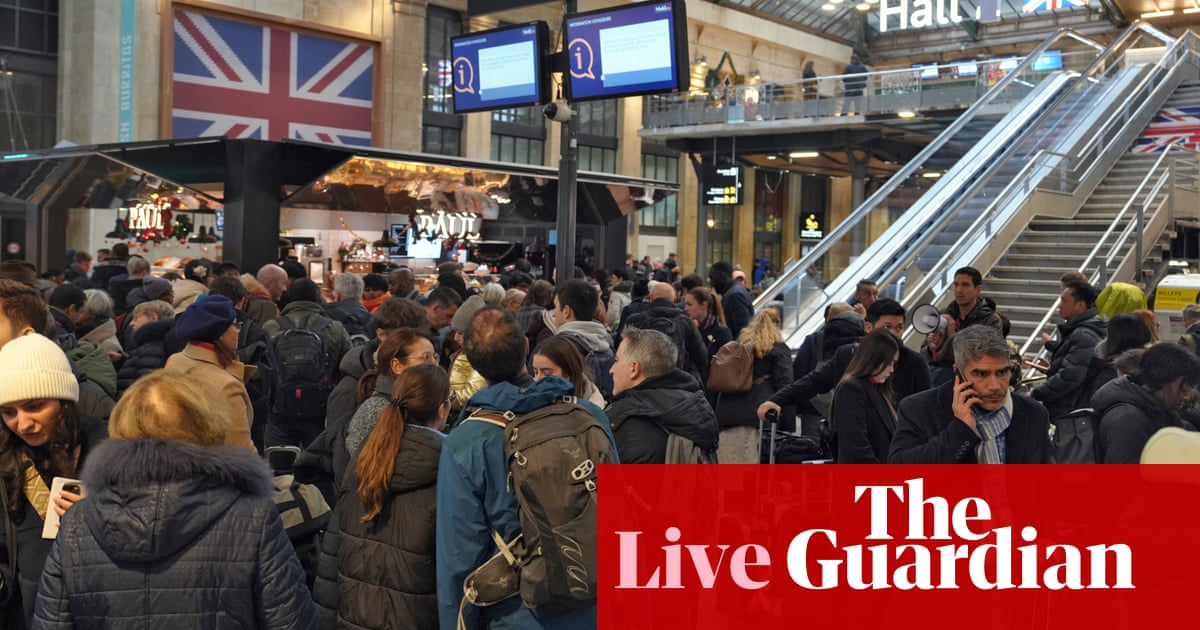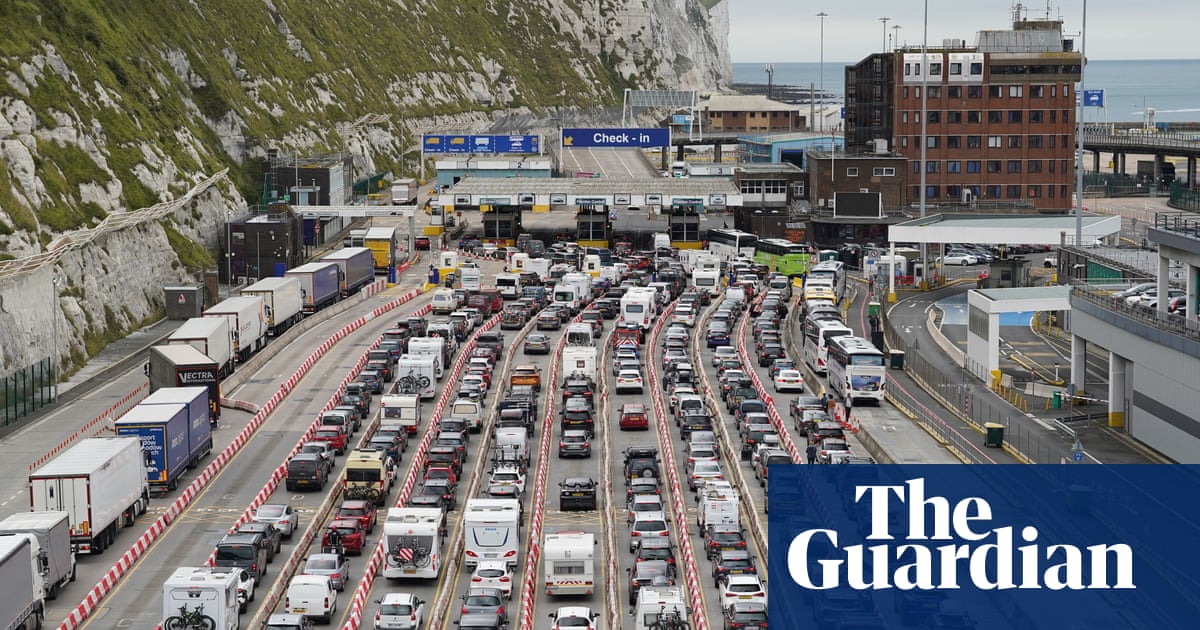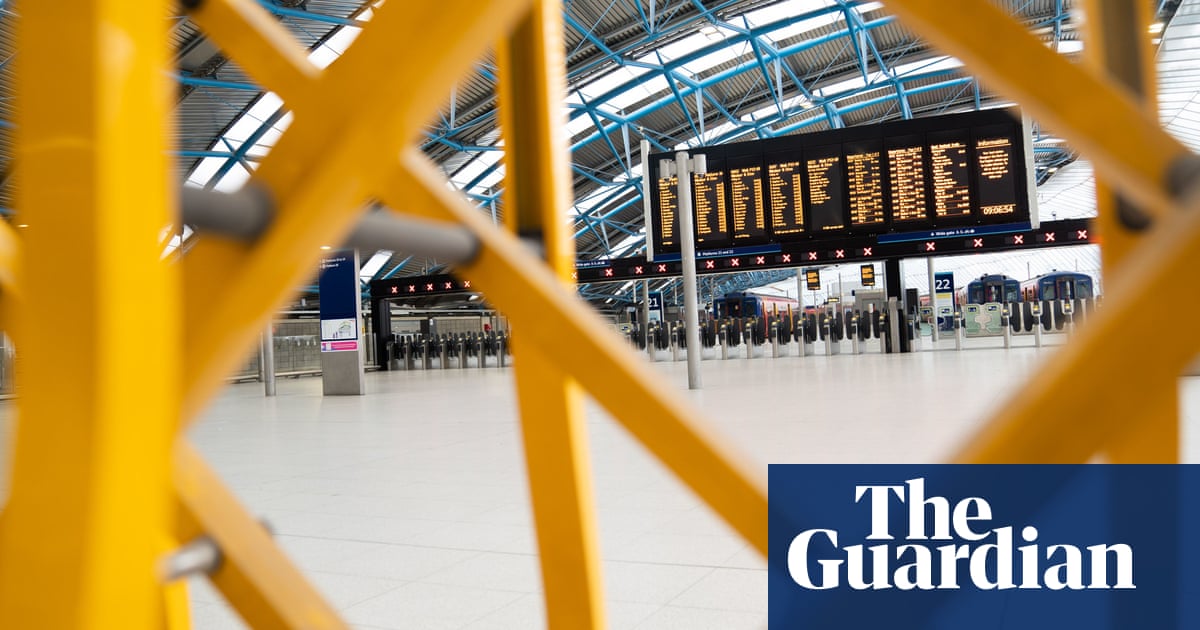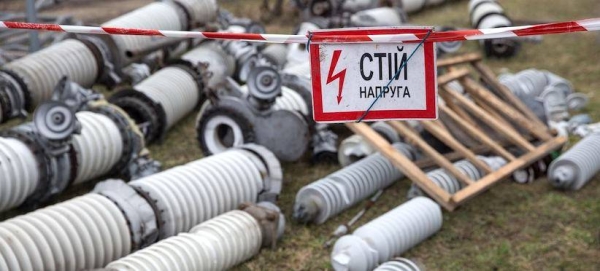
Millions of Britons are facing a potentially chaotic Christmas getaway amid strikes on railways and by airport border staff, as unions accused ministers of causing the disruption by “going missing” rather than negotiating over pay.
The AA said motorists were facing “a traffic nightmare before Christmas” on the eve of the festive weekend, as heavy rain and flooding added to the disruption caused by widespread industrial action.
Most rail services will end by 3pm on Christmas Eve, as thousands of members of the RMT at Network Rail begin a strike three hours later, one lasting until 6am on 27 December. Final intercity trains on most long-distance routes trains will depart between 8am and 1pm, while some routes will not operate at all.
The RMT has said it is not targeting Christmas travel, as no passenger trains normally run over the Christmas bank holiday. But the rail industry said the timing of the strike meant passenger trains would need to be in depots before the action started.
The RMT accused ministers of “going missing” with no further negotiations having taken place since the union and industry leaders met the rail minister, Huw Merriman, last week.
The union’s general secretary, Mick Lynch, said: “Until the government gives the rail industry a mandate to come to a negotiated settlement on job security, pay and conditions of work, our industrial campaign will continue.”
The army took over passport control duties at six airports around Britain on Friday – Heathrow, Gatwick, Manchester, Birmingham, Glasgow and Cardiff – as Border Force officials started eight days of strikes over the festive period.
The worst of the feared disruption for inbound passengers, who had been told to expect long queues and possible disruption, did not materialise, with some passengers at Heathrow, Gatwick and Manchester claiming to have got through the immigration hall more quickly than usual.
But the Public and Commercial Services Union (PCS) said the action would escalate in the new year unless pay offers were reached. With officials at the seaport of Newhaven also striking, PCS general secretary Mark Serwotka said that members at the bigger port of Dover could be called out next, potentially over six months of action across government departments.
Serwotka added: “I think in January what you will see is a huge escalation of this action in the civil service, and across the rest of our economy, unless the government get around the negotiating table.”
Rail firms and motoring organisations suggested the worst of the Christmas getaway may have been mitigated by people opting to travel earlier in the week, with the RAC noting spikes in traffic on Monday.
The AA said roads were extremely busy on Friday nonetheless, with more than half the usual number of daily breakdowns reported to its patrols before midday.
Edmund King, AA president, said research showed just under a third of adults were this year opting to drive on journeys where they would have used the train. Parts of the M25 were closed due to flooding in the morning, while severe congestion was also reported by the AA on the M1 around Luton in both directions, the M20, M3, M4/M5 near Bristol, the M5 north of Birmingham, M60 west of Manchester and M8 near Glasgow.
King said: “After a slow start the traffic nightmare before Christmas is getting worse. Today and tomorrow will be the busiest on the roads with some 17m trips each day.”
Ministers face a new year in which a string of public sector unions is pledging long-term strike action, extending well beyond transport.
While the GMB announced on Friday it was putting off a second ambulance workers’ strike planned for 28 December until 11 January, billed as a way to show “gratitude” for public support for the first stoppage, the Royal College of Nursing announced two new strike dates for January.
Some unions have now indicated they could accept an improved pay deal below inflation. However, ministers are sticking rigidly to their position that it is impossible to move beyond deals offered months ago by official pay review bodies.
Quizzed about the transport strikes during a visit to a homeless shelter in London on Friday, Rishi Sunak said he was “really sad” at the disruption, insisting the government had “acted fairly and reasonably in accepting all the recommendations of the public sector pay review bodies”.
Asked whether he was willing to risk a drawn-out period of stoppages, the prime minister said increasing pay offers risked exacerbating inflation, calling this “the major economic challenge that we all face”.
Even before the main Christmas strike, industrial action by the RMT across train operators in England severely impacted some services on Friday, with an overtime ban bringing many South Western, Chiltern and East Midlands trains to a premature halt on Friday.
Dozens of trains operated by TransPennine Express, Northern and Avanti were also cancelled, mainly due to ongoing problems staffing trains.
Engineering work and strikes by the TSSA union at several train operators will further disrupt the railway until new year, when five days of strikes by the RMT and drivers union Aslef will wipe out most services again.
Rail passengers in the south-east could face more disruption as the Prospect and TSSA unions announced strikes on the Elizabeth Line on 12 January, followed by an overtime ban until the end of February. Transport for London said the impact on services was unclear.
A three-day baggage handlers’ strike which could have compounded problems for arriving passengers at Heathrow from 29 December was called off by Unite after members agreed to a 10.5% pay rise with employer Menzies.
A Department for Transport spokesperson said: “Far from blocking a deal, the transport secretary and rail minister have facilitated talks and ensured a fair and reasonable offer was put forward.
“After two years of virtual Christmases, the British public deserve better than to have their festive celebrations impacted by strikes.”












